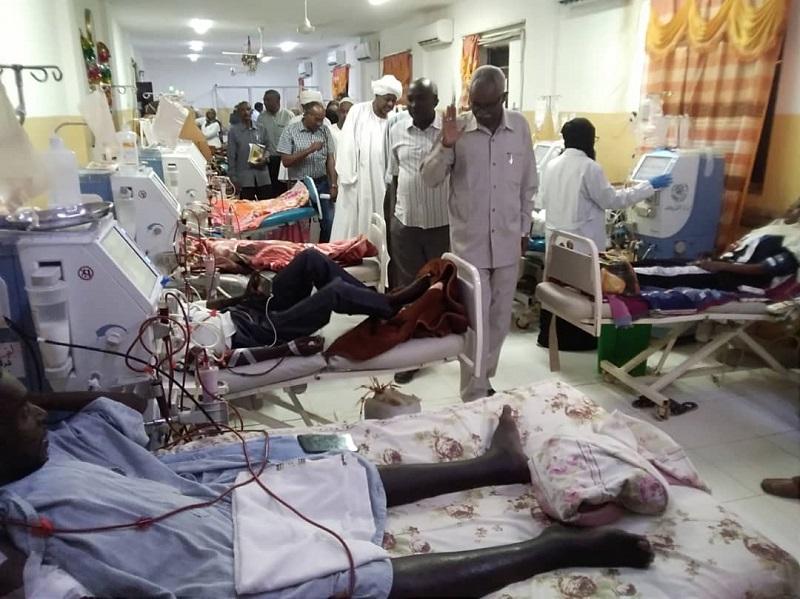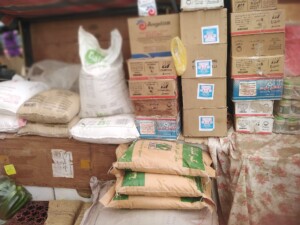‘Technical problems’ lead to closure of northern Sudan dialysis centre

War forced kidney patients to travel to Kosti in White Nile state for dialysis treatment, May 2023 (File photo: SUNA)
The dialysis centre in Ed Debba in Northern State had to close its doors for its 62 patients last week, because of a delay in the delivery of spare parts. Soaring prices, power outages and fuel shortages due to the ongoing war between the Sudanese Armed Forces (SAF) and the Rapid Support Forces (RSF) also exacerbate the suffering of the patients.
The closure of the dialysis centre in the town of Ed Debba is due to technical difficulties with the dialysis machines and delayed deliveries of spare parts, a relative of a kidny patient told Radio Dabanga yesterday.
“The nearest alternative clinic, the Qatari Solidarity Centre, is 50 kilometres away and only open two days a week. Other centres, such as those in Dongola, north of Ed Debba, and Atbara in River Nile state, operate throughout the week but require even longer travel,” he explained.
“The cost of transportation to and from the Qatari Solidarity Centre is very high, amounting to more than SDG80,000. However, in general, the health condition of patients with kidney failure does not permit long hours of travel.”
The source said that they have contacted the National Dialysis Centre of the Sudanese Ministry of Health with the urgent request to find a solution as soon as possible.
Many patients are suffering from the scarcity and high prices of medicine. “We now pay SDG10,000 for a calcium supplement that used to cost SDG700. Other medicines are completely unavailable, such as oral and intravenous iron agents, and can only be obtained from outside Sudan through relatives and friends,” he said.
“Doctors have recommended the kidney patients in Ed Debba to reduce their fluid intake during the closure of the dialysis centre but this is almost impossible with temperatures reaching 50 degrees Celsius.”
Shortages, prices
Kidney patients in Ed Debba are not the only ones hit by shortages. Those suffering from kidney failure in Port Sudan, capital of Red Sea state, held a series of vigils two weeks ago in front of the city’s dialysis centre, condemning the Ministry of Health’s failure to allocate dialysis machines received through foreign aid.
Moreover, Port Sudan, the new de facto home of the Sudanese government since the outbreak of the war between the Sudanese army and the paramilitary RSF in April 2023, has been experiencing power outages caused by fuel shortages. In September last year, a 36-year-old kidney patient died due to a power cut caused by insufficient fuel for the generator supplying electricity to the city’s dialysis centre.
The ongoing RSF-SAF fighting has further crippled the nation. Moez Saleh, director of Global Sudan, told Radio Dabanga in early March that the war has led to the cessation of 70 per cent of all commercial activity in the country. According to banking expert Omar Sidahmed, “97 per cent of the economic activities in Sudan are beyond the jurisdiction of the Ministry of Finance”.
So far, Sudan’s de facto government has not been able to announce the level of inflation. The International Monetary Fund reported that the inflation rose to 256.17 per cent by February. Sudanese traders, however, say that prices have risen at least fivefold since the start of the war. They expect more significant increases in the coming months.











 and then
and then